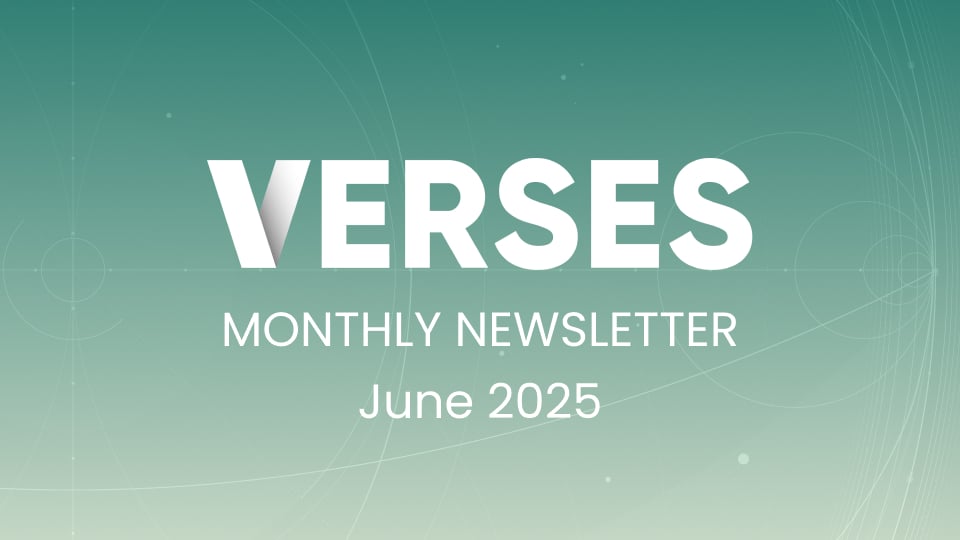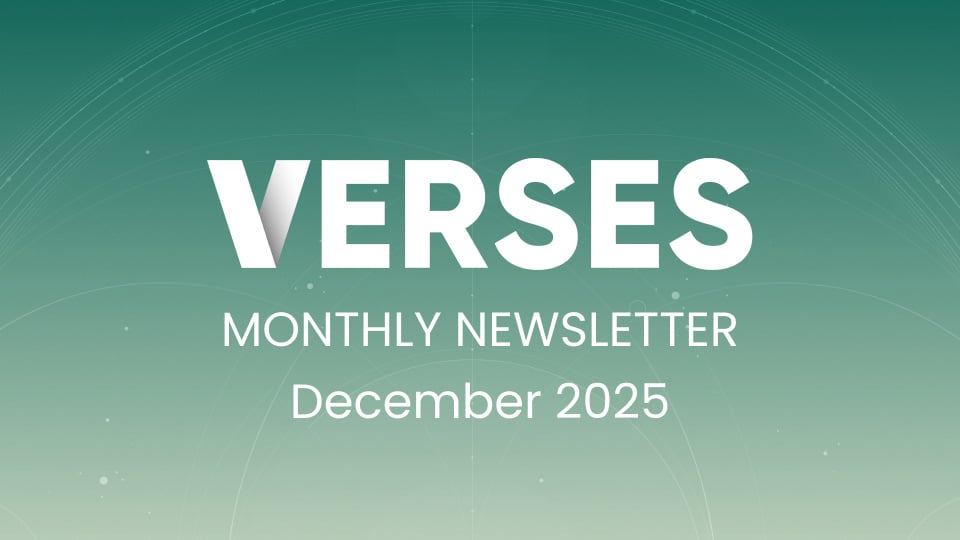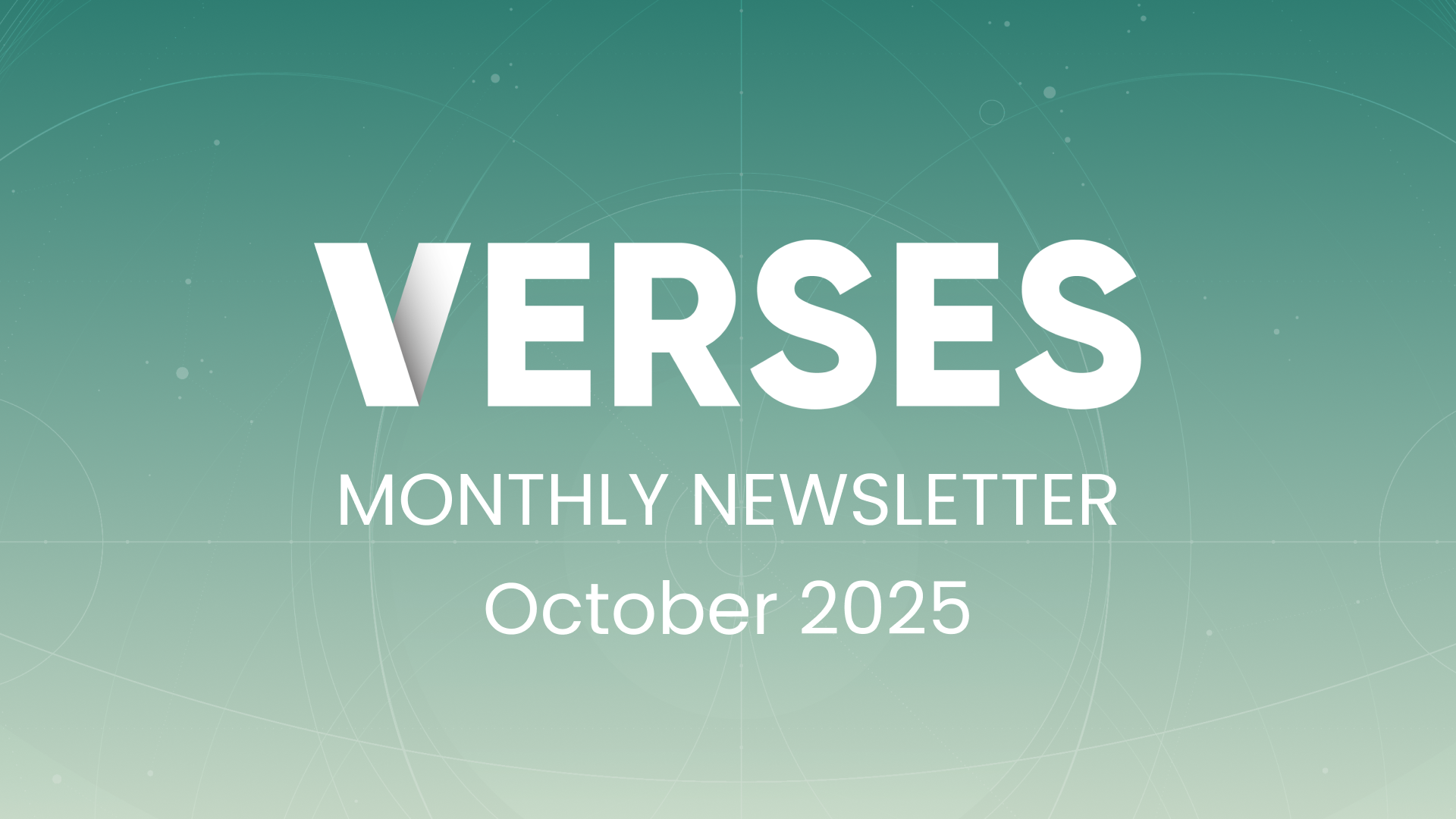
In this month’s newsletter:
- Letter from the CEO
- Karl's Corner
- IWAI
- Financing
- Gartner
FROM THE CEO
In recent weeks, we've seen a broader recognition of our work at VERSES as the AI markets shift from digital intelligence, AI chatbots and content generators to physical intelligence, Spatial AI, robots, and sensor driven automation as the next and largest AI market opportunity. One that Jensen Huang, CEO of NVIDIA, suggests is a $50 Trillion Dollar Market.
You can think of this simply as giving AI senses and a body. But while the AI market fights for this pivot, VERSES has been preparing for, and is already positioned for, this phase.
Here is a highlight reel that we have also just published featuring our 2025 physical AI breakthroughs-including robotics, perception and coordination.
We’ve also been receiving important recognition as the new leaders in this space.
Gartner recently recognized us in their Emerging Tech Impact Radar: Spatial AI, saying that “Spatial AI is turbocharging AI’s value.” They predict that, by 2028, five of the top 10 AI companies will pivot to physical AI solutions “leaving digital-only competitors out of the AI race.”
The importance of physical intelligence, and spatial and embodied technologies was further underscored at the International Workshop on Active Inference (IWAI) a few weeks ago.
The event showcased cutting-edge research in robotics and cognitive computing, where we were proud to present our own peer-reviewed work—including our Axiom digital brain, robotics that operate without pre-training, and agents capable of inferring emotions.
A particular highlight was the fireside chat between renowned AI Professor Gary Marcus and our Chief Scientist Karl Friston. Gary repeatedly highlighted the strengths of using domain models as we do: “many people in machine learning have a violent aversion to putting any innate structure in their models; VERSES, to its credit, does not…[what] Karl is rightly recommending is to say, from first principles, what do we want cognition to look like? We want to have agency…representations of uncertainty... we're not going to do that with these opaque black boxes [of LLMs].”
And finally, last week we announced new investment from Sorbie Bornholm. Alongside this, we have undertaken an internal restructure to focus our teams on industry verticals where we have existing enterprise customers and technological strength. These areas include financial services, smart cities, and robotics. Solutions that we develop for these customers will then become available more generally through Genius™.
Gabriel René
Founder and CEO, VERSES
Watch this video reflecting breakthroughs we've made in 2025 on Physical AI and Embodied Intelligence by applying Active Inference and Genius.
2025 PHYSICAL AI BREAKTHROUGHS WITH GENIUS
KARL’S CORNER
This month, Karl discusses efforts to formalize and emulate human-like reasoning in artificial intelligence, particularly the distinction between System 1 (fast, automatic) and System 2 (slow, deliberative) thinking.
This work centers on how an AI system might discover the rules or structure underlying a problem when those rules are not given. The process uses active inference to learn the cause-and-effect structure of the world itself. Essentially, this is like being given a puzzle, without knowing the rules. What is the best way to find out what the rules are? Humans survive by solving this problem constantly.
Karl points out that a scientist designing experiments to efficiently differentiate between competing hypotheses is just doing what everybody naturally does. The system must actively gather data—through interaction with its environment—to reduce uncertainty about which world model best explains observations.
This is a kind of active reasoning: an extension of active inference that includes not just testing hypotheses but also deciding which actions will yield the most informative data for distinguishing among them. This represents a move toward formalizing self-directed hypothesis testing and reasoning about the structure of world models themselves.
This can then be used to tackle challenges, such as the underlying structure of financial markets, for VERSES customers.
Watch the full interview on our YouTube channel
VERSES NEWS
- VERSES Announces Financing Agreement with a Notional Value of CAD$14 Million and Reduces Staff to Streamline Operations
- VERSES Recognized in the 2025 Gartner® Emerging Tech Impact Radar: Spatial AI
- VERSES Closes Financing Arrangement with a Notional Value of CAD$14 Million and Receives First Tranche of CAD$700,000
Catch up on everything we are doing on our subreddit
International Workshop on Active Inference 2025
The International Workshop on Active Inference (IWAI) has reached an inflection point. What began as a small workshop tucked beneath a stairway at the European Conference of Machine Learning (ECML) has evolved into a gathering that drew record attendance and submissions this year.
Hari Thiruvengada, VERSES Chief Technology Officer, said “Last year, most of the work was in the digital space and focused on smaller applications...This year, that flipped. We saw broader applications in cognitive computing, robotics, and even physiological spaces like depression and clinical matters.”
Chief Scientist, Karl Friston, took part in a fireside chat with Gary Marcus.
References
FORWARD LOOKING DISCLAIMER
Certain information included in this newsletter contains statements that are forward-looking, such as statements related to our flagship product, Genius, the commercial application of Genius and our research developments, as well as developments in the AI sector. Such forward looking information involves important risks and uncertainties that could significantly affect anticipated results in the future and accordingly, such results may differ materially from those expressed in any forward looking statements made by or on behalf of VERSES.
 VERSES
VERSES
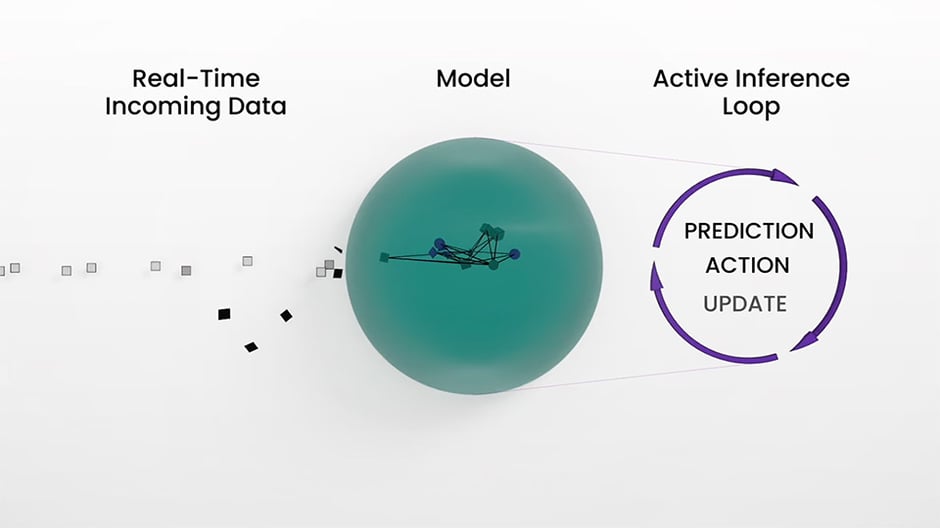
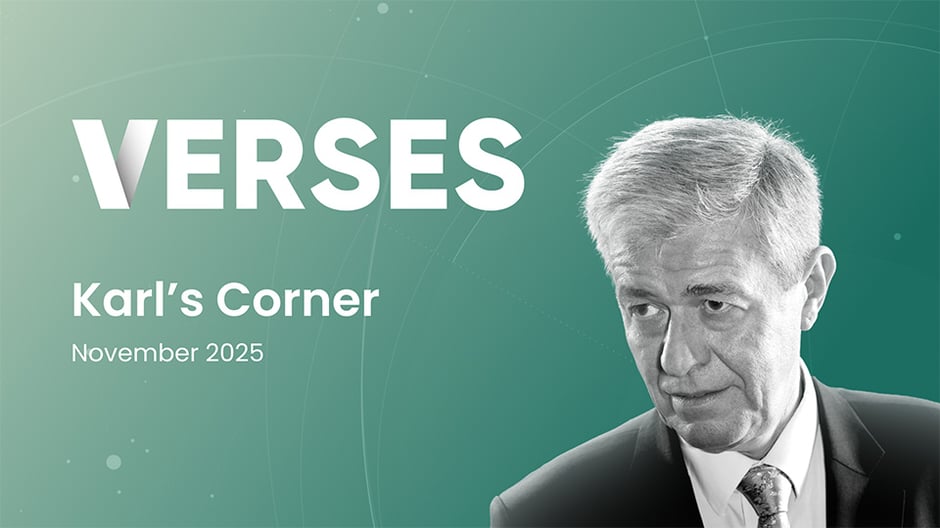
%202025.jpg?width=940&height=769&name=Gary%20Marcus%20Karl%20Friston%20Fireside%20Chat%20International%20Workshop%20Active%20Inference%20(IWAI)%202025.jpg)
